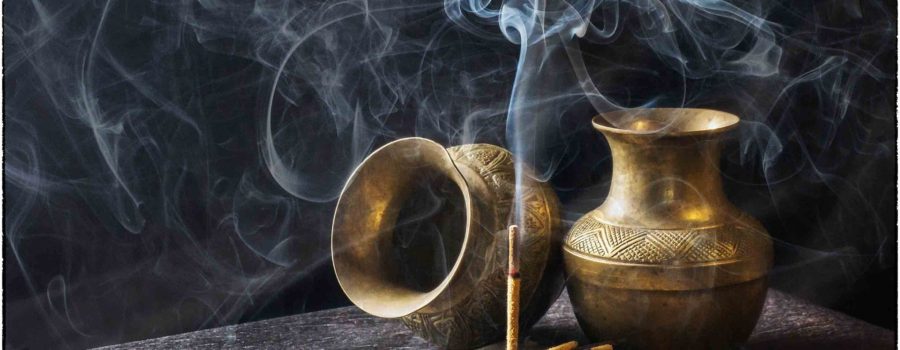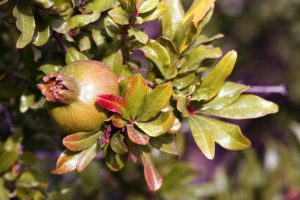A retrospection
We have seen—in the first post of the present series—that the Beloved sees the life of the passionate Christian as a sanctified garden, i.e., a garden set apart for Himself, a sort of paradise exhibiting a fine selection of plants, all of them precious and useful. We have also walked through this garden and pondered on some of the characteristics related to its plants, viz. their beauty, habitat, usefulness, fragrance and so on.
The bold part of the text quoted above represents the section of the garden we have considered so far. The considerations have been very brief but I hope inspiring and edifying. Today we will continue to stroll through this delightful garden, pausing here and there to consider some of the traits of other plants and their respective environment.
With all trees of frankincense
Frankincense (in Hebrew לְבוֹנָה, not to be confused with קְטֹרֶת, which means incense) is derived from the sap of different small trees, predominantly from the species belonging to the Boswellia genus. The resin they secrete is milky and highly aromatic. It turns into gum when exposed to the air. It is not my intension here to enter into elaborated details. What is important for us is to realize that the Beloved delights in frankincense and He wants us to produce it, and the only way we can produce it is by being filled of aromatic sap through the indwelling Spirit.
The Scripture declares emphatically that the trees of the Lord are full of sap (Psalm 104:16). And they are full because their roots are spread wide and anchored deep into the soil (Jeremiah 17:8). This crucial anchoring takes place when times of dryness come into our life. During these arid seasons our roots are provoked to reach deeper into the soil to find water. What appears to be against us turns actually for our good, and the Beloved—as an efficient gardener—knows how much we can handle.
The psalmist had noticed how God prepares room for us and causes us to take deep roots (Psalms 80:9). With such meticulous care the lover “will not fear when heat comes; but his leaf will be green, and will not be anxious in the year of drought, nor will cease from yielding fruit” (Jeremiah 17:8).
 The Hand of providence
The Hand of providence
Contrary to what is generally believed abundant rain is not beneficial for us. It encourages complacency and superficiality, a superficiality that can prove fatal when a mighty storm or a severe drought hits the land. In the first case the tree is uprooted and falls to the ground; in the second it dries up and dies.
What is true about trees is also applicable to us. This should encourage us to accept what the Hand of providence sends: rain or drought, shine or clouds, all is for our good and should be received with gratefulness.
Myrrh
When we speak of myrrh we refer to the hardened resin produced by a small thorny tree or shrub called Balsamodendron myrrha or commiphora myrrha. It usually grows in arid lands. It was the first ingredient used in the making of the holy anointing oil (Exodus 30:23), and one of the gifts the wise men offered to the infant Jesus (Matthew 2:11).
When the tree is wounded and the gash reaches the sapwood, the tree bleeds a resin. To harvest myrrh people wound the trees repeatedly. The gum thus produced is waxy, and coagulates quickly. When harvested it becomes hard and glossy. It is usually yellowish and may be either clear or opaque. It is used to produce a fine perfume as well as incense of high quality. In the Song of Songs myrrh is used in abundance by the bride and her Beloved (1:13; 3:6; 4:6 & 14; 5:1, 5 & 13).
There are two basic lessons for us here. The first one is that times of dryness can produce a substance the Beloved delights in. I am not referring here to the dryness caused by sin, but to these arid periods the Hand of providence permits to beautify us and create fragrance and usefulness. Brother Lawrence, understanding the legacy of such demanding spell, wrote:
Lord, I am yours, dryness does not matter or affect me.”
This lover of God had learned the value of providential dryness. He accepted it with gratefulness as a gift of trust and love.
The second lesson resides in the fact that the wounds produced by the circumstances of life—whether personal or impersonal—can grant us an opportunity to release the fragrant character of Christ. Such aromatic secretion will take place only if our ego has yielded itself to the indwelling Spirit. If this yielding has not occurred the bleeding produced by the cuts and wounds will not release fragrance but rather frustration and bitterness, or perhaps anger or self-pity. Brethren, let us yield to Him in utter trust and reverence, for He knows our frame and His compassion abides forever.
If you think this post can help somebody you can share it with the options presented bellow.













